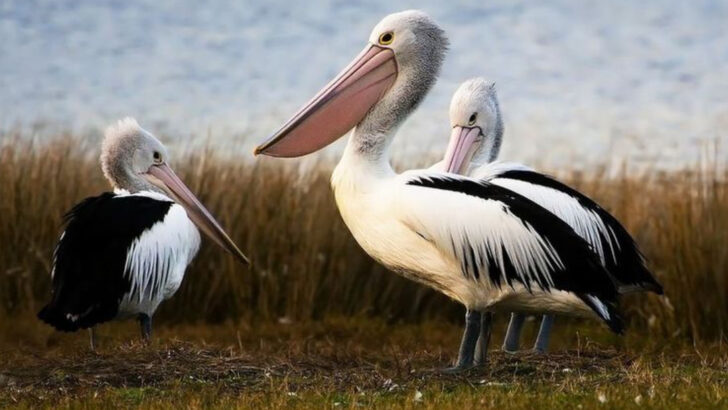Put down the birdseed—some birds just shouldn’t be fed.
As tempting as it is to toss crumbs to every fluttering visitor, not all birds benefit from your generosity. In fact, feeding the wrong ones can cause serious harm—to them, to other birds, and even to entire ecosystems.
Some become aggressive. Others grow dependent. A few turn into noisy, messy neighborhood nuisances that drive everyone (including native species) up a tree.
Ready for a little tough love? These 17 birds may look sweet, but giving them snacks could spell trouble. Let’s talk about who to avoid—and why it matters more than you think.
Pigeons
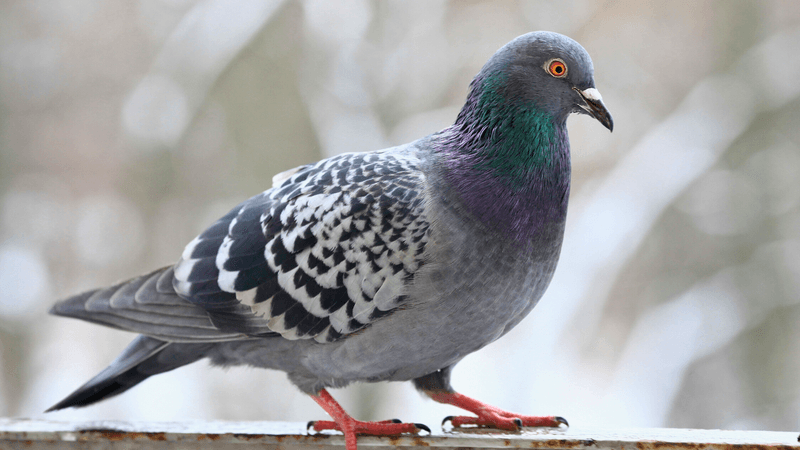
Often found in urban areas, pigeons may seem harmless with their cooing melodies. However, feeding pigeons can lead to overpopulation and dependency on human-provided food sources.
This dependency can affect their natural foraging habits, leading to health issues. Moreover, pigeon droppings are not just unsightly but can also carry diseases harmful to humans.
For city dwellers, avoiding feeding these birds is a step toward maintaining a balanced urban ecosystem.
Seagulls
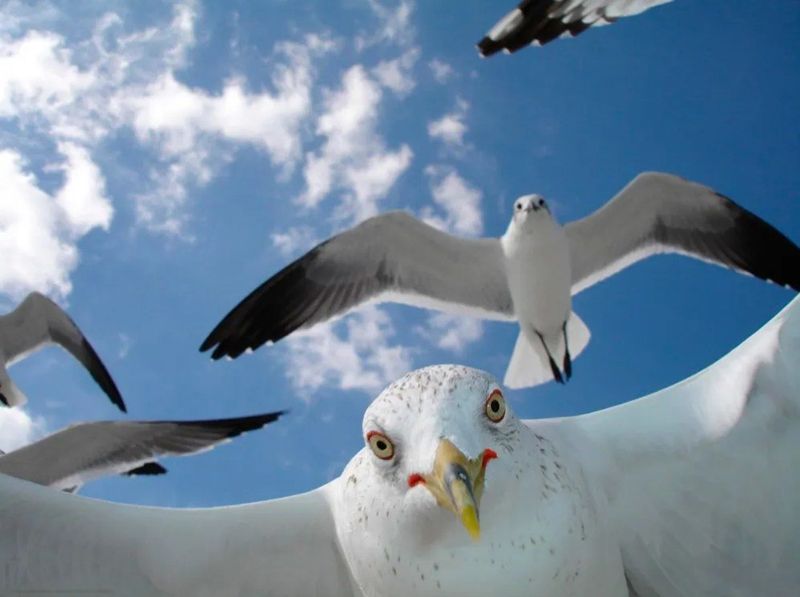
Seagulls are iconic at beaches but feeding them can cause havoc. These opportunistic feeders become aggressive when accustomed to handouts, often snatching food directly from unsuspecting beachgoers.
This behavior not only disrupts human enjoyment but also poses a risk as seagulls can carry bacteria harmful to humans. Letting them forage naturally supports their health and keeps beach environments pleasant for all.
Crows
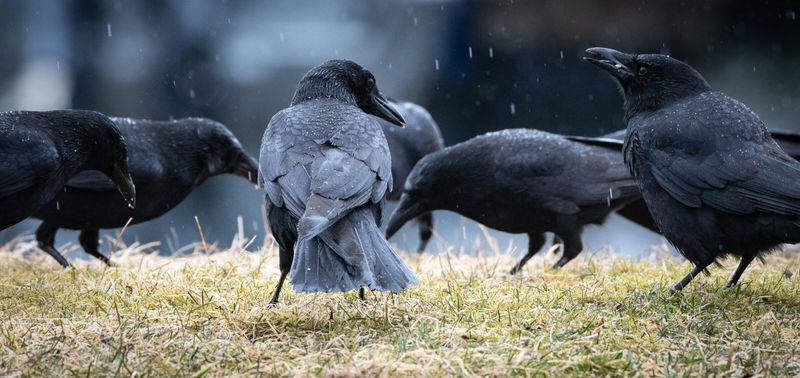
Crows are intelligent, resourceful birds with complex social structures. However, feeding them can lead to increased aggression and territoriality. Their presence in large numbers can disturb smaller bird species and disrupt local ecosystems.
Additionally, crows can become overly reliant on human-provided food, which may reduce their natural foraging instincts. Observing these clever birds from a distance helps preserve ecological balance.
Sparrows
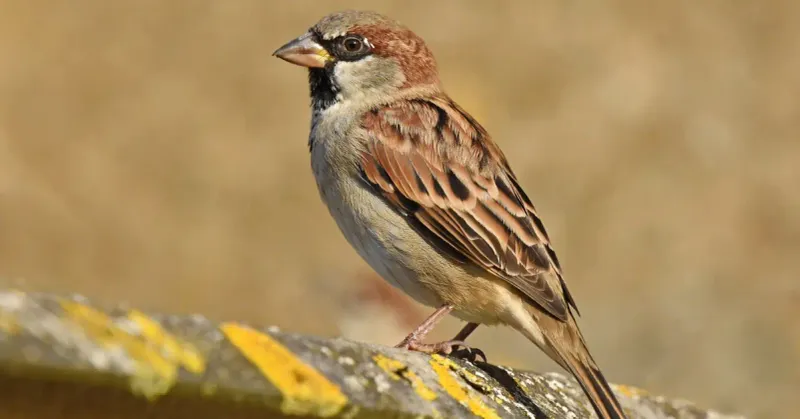
Though sparrows are small and charming, feeding them in suburban areas can result in unintended domination of local bird feeders. They tend to outcompete native species for resources. This imbalance can lead to a decrease in biodiversity.
By limiting their access to easy food, you encourage a healthy variety of birds in your backyard, enhancing the natural beauty and diversity of local wildlife.
Starlings

Starlings are known for their mesmerizing murmurations, but they are also aggressive when it comes to food. Feeding starlings can lead to large, unruly flocks that outcompete native birds for resources.
This can have a negative impact on local avian populations and biodiversity. Allowing starlings to fend for themselves helps maintain ecological balance, preserving the diverse bird life of an area.
Grackles
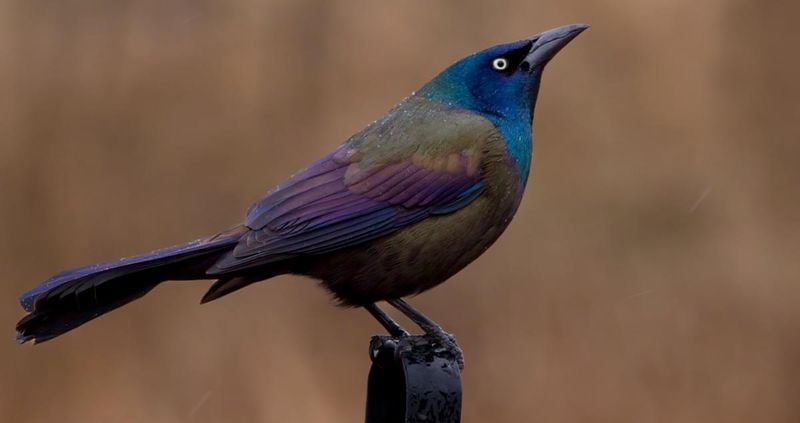
Grackles, with their striking iridescent feathers, are often seen scavenging in urban settings. Feeding them encourages flock formation, leading to noise and mess in public spaces.
Their aggressive nature can displace other bird species and alter the local ecosystem. By refraining from feeding grackles, you support a more harmonious and cleaner environment in urban areas.
Ducks
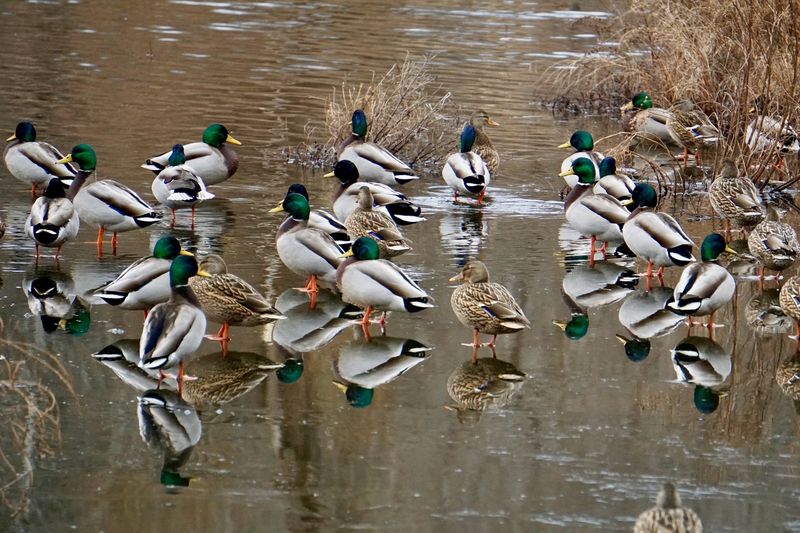
Feeding ducks, especially bread, is a common pastime but poses significant risks. Bread offers little nutritional value and can lead to malnutrition and health issues like angel wing, a condition affecting flight.
Overfeeding can also result in overcrowding and pollution of waterways. Supporting ducks by letting them find natural food sources is crucial for their wellbeing and the health of aquatic environments.
Geese
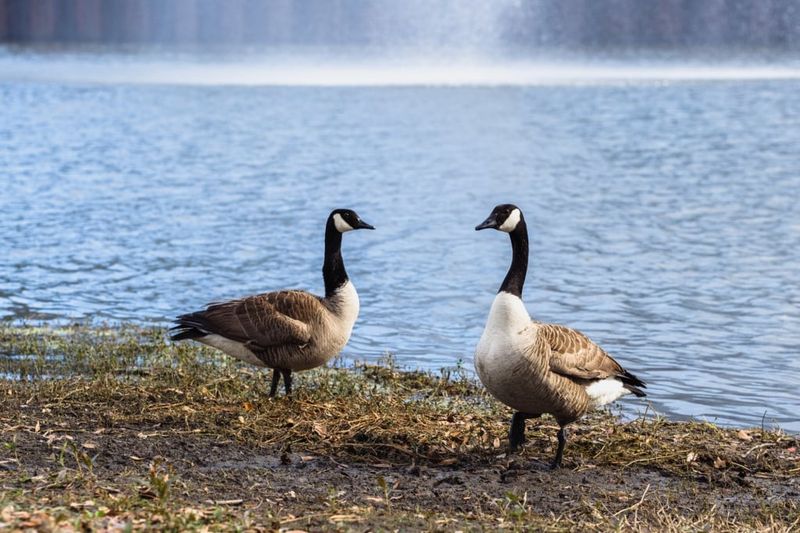
Geese are majestic yet can become a nuisance when fed by humans. They may grow dependent on handouts, leading to overpopulation and aggressive behavior toward humans.
Their droppings can also pollute parks and lakes, affecting water quality and recreational areas. Encouraging geese to forage naturally supports a balanced ecosystem and a cleaner, more enjoyable environment for everyone.
Swans
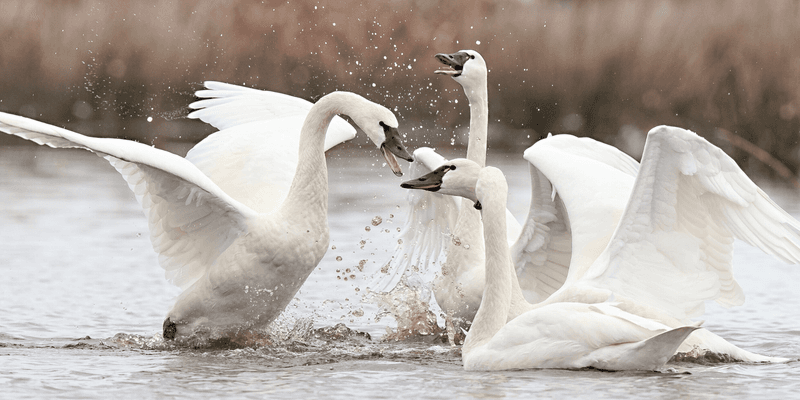
Swans exude grace but feeding them can lead to dependency and health issues. Human food lacks essential nutrients they need, potentially leading to malnutrition.
Furthermore, swans may become aggressive if they anticipate food from visitors, spoiling the tranquil experience for others. Observing swans from a distance maintains their natural behaviors and ensures they fulfill their nutritional needs naturally.
Pelicans
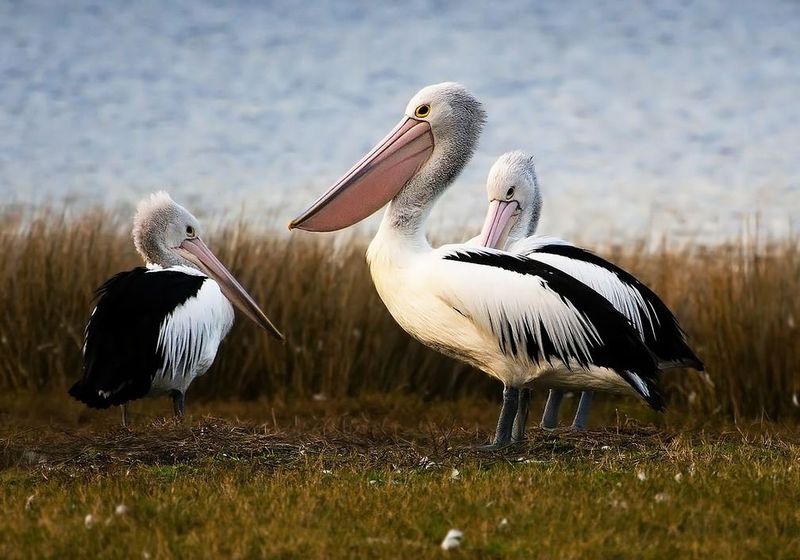
Pelicans, known for their unique fishing skills, can be adversely affected by human feeding. When accustomed to receiving food, they may abandon their natural hunting practices.
This dependency can lead to nutritional deficiencies as human food often lacks necessary nutrients. Watching pelicans engage in their natural behaviors is a joy, and refraining from feeding supports their health and ecosystem roles.
Owls
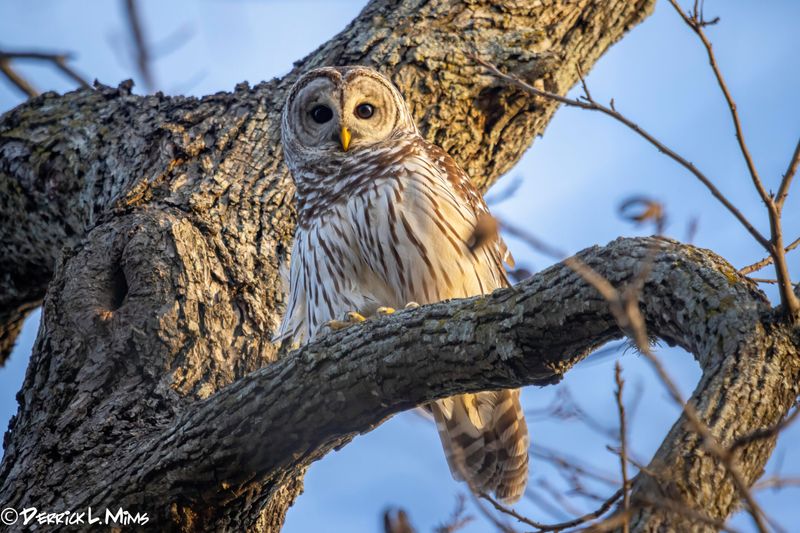
Owls are mysterious creatures of the night, and their diet consists primarily of small mammals. Feeding owls can disrupt their natural hunting habits and lead to nutritional deficiencies.
Many owls are solitary hunters, and providing food can cause them to congregate, leading to competition and stress. Furthermore, human food can contain harmful substances, negatively impacting their health.
You can help owls by protecting natural habitats and reducing light pollution, which allows them to hunt more efficiently.
Blackbirds
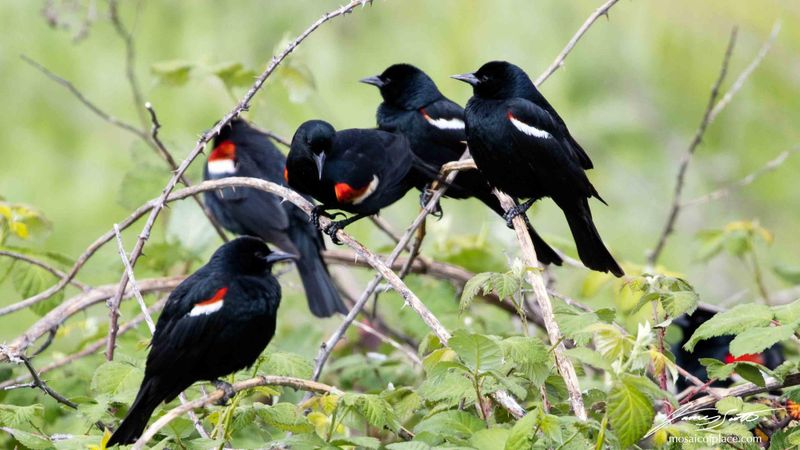
Feeding blackbirds, especially in agricultural areas, can encourage population booms that affect crop yields. These birds can compete with other species for food, disrupting local biodiversity.
Moreover, large gatherings of blackbirds can become noisy and create messes. Letting them find food naturally in their habitat helps maintain a balanced ecosystem and supports agricultural health.
Cuckoos
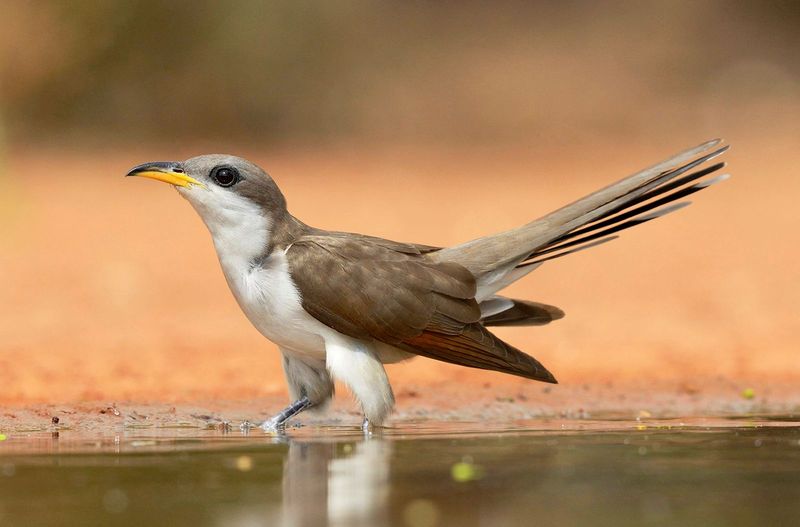
Cuckoos are fascinating for their brood parasitic behavior but should not be fed by humans. Feeding cuckoos can interfere with their natural lifecycle and disrupt their instinct to forage.
These birds play a specific role in controlling insect populations, and human feeding can upset this balance. Observing cuckoos in their natural setting allows them to thrive and fulfill their ecological niche.
Magpies
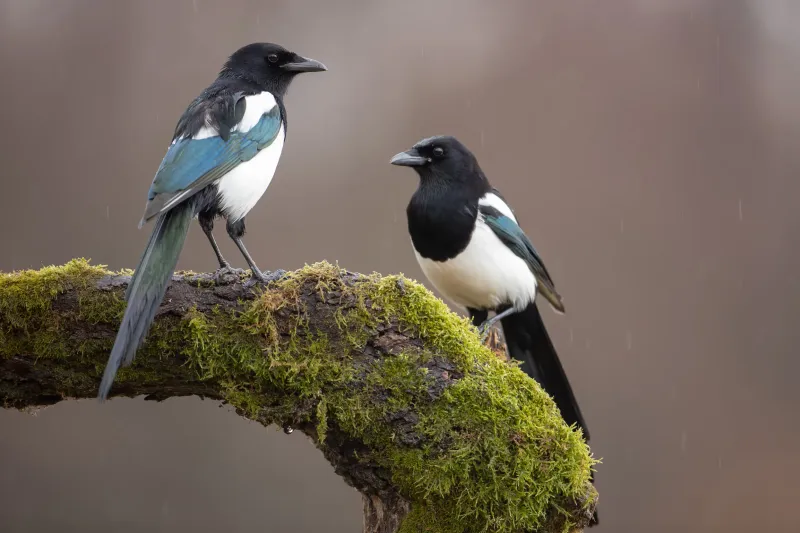
Magpies are intelligent birds known for their curiosity and problem-solving skills. Feeding them can lead to increased aggression and territorial disputes with other birds. Additionally, they may become dependent on human food, which can lack necessary nutrients.
By not feeding magpies, you encourage them to engage in natural foraging, supporting their health and the diverse bird community.
Jays
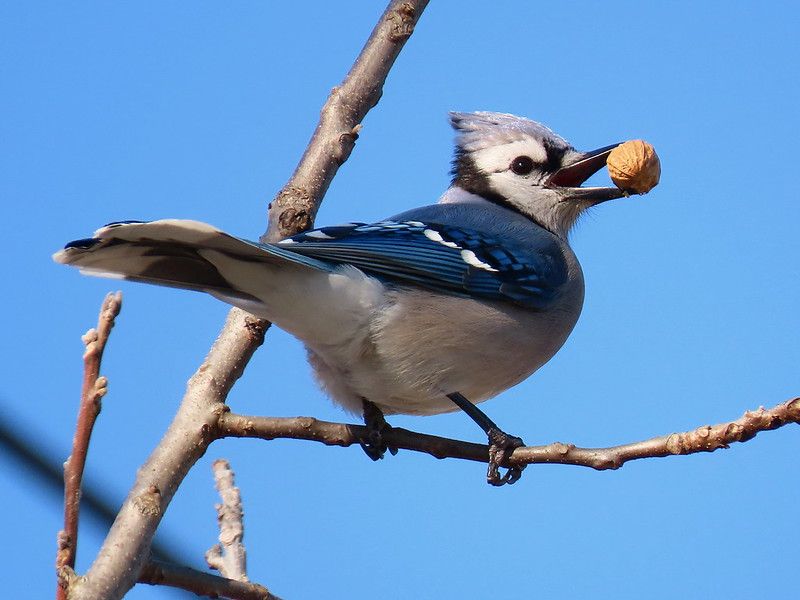
Jays are bold, colorful birds that can disrupt local ecosystems if fed. Human food can diminish their health and encourage aggressive behaviors, as they become accustomed to easy meals.
This can lead to competition with other birds for resources. Watching jays in their natural habitat, without interference, supports ecological balance and allows their beauty and intelligence to shine.
Ravens
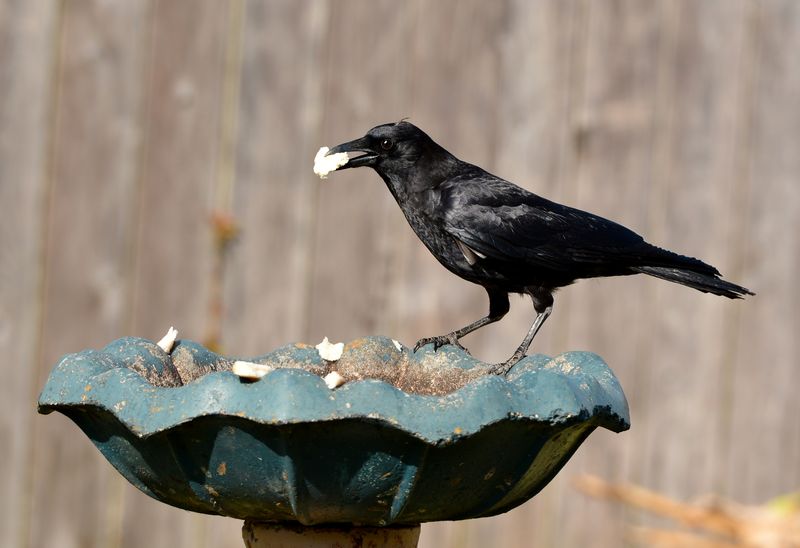
Ravens are majestic and intelligent, with a storied presence in mythology. Yet, feeding them can lead to dependency and alter their natural behaviors. Human food can cause nutritional imbalances, affecting their health.
Furthermore, large groups of ravens can disrupt smaller bird species and local fauna. Observing ravens from afar helps preserve their mystique and ensures they remain a vital part of their ecosystem.
Robins
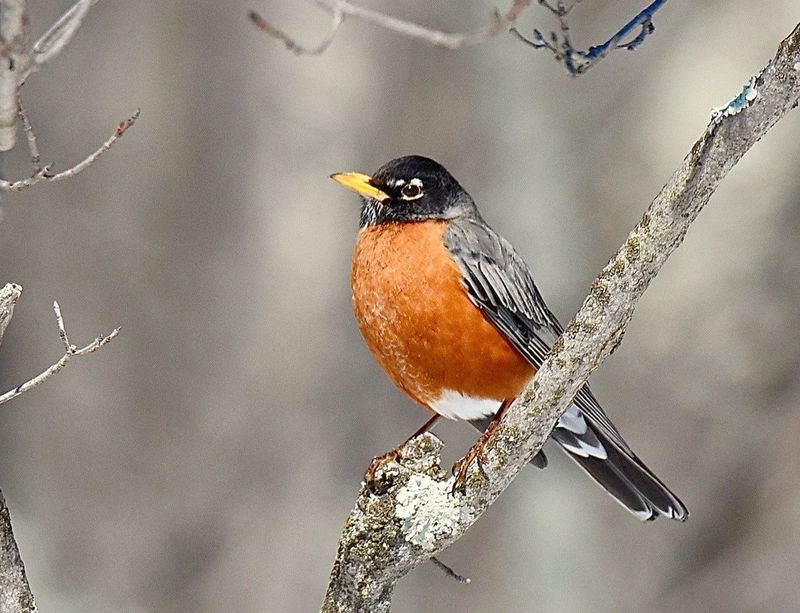
Robins, with their iconic red breasts, are often seen as heralds of spring. However, feeding them can lead to unintended consequences for their health and behavior.
Human food may lack essential nutrients, and dependency can reduce their natural foraging instincts. Supporting robins by allowing them to hunt for worms and insects in their natural environment helps maintain their vibrant presence in gardens and parks.

